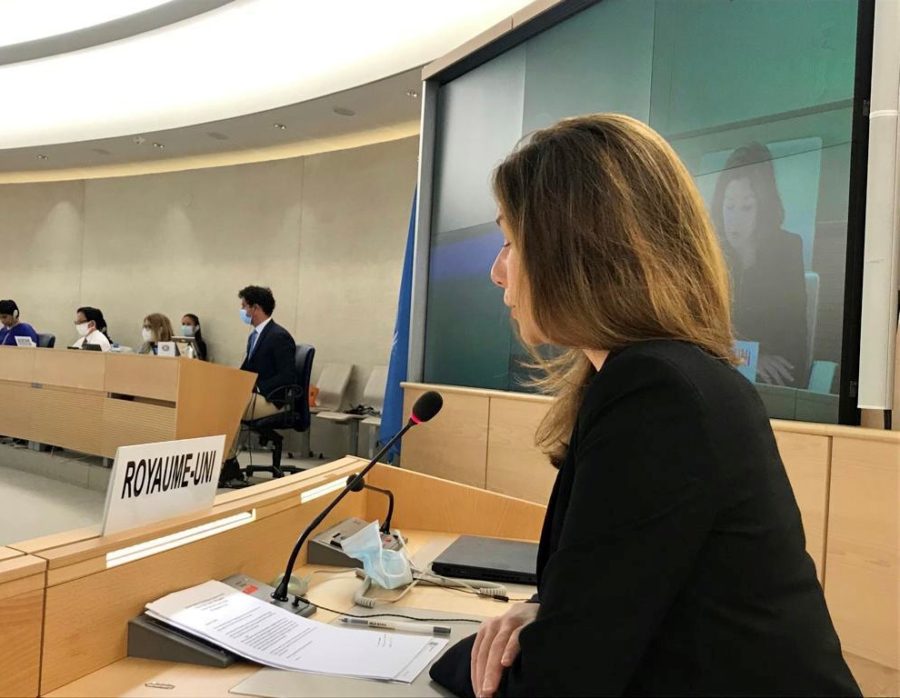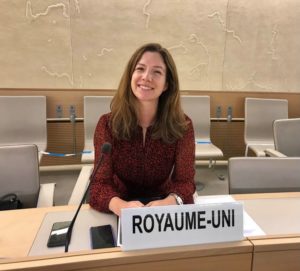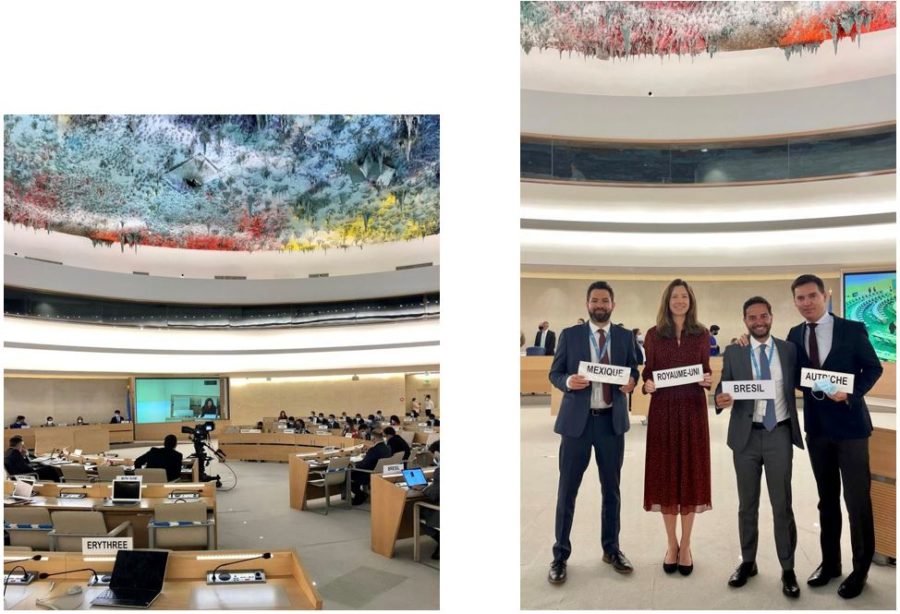23rd July 2021 Geneva, Switzerland
Privilege and Power at the Palais des Nations

After 13 sessions, dozens of resolutions, and innumerable late nights staring square-eyed at incomprehensible drafting changes, my tenure as part of the UK’s negotiating team at the UN Human Rights Council finally concluded last week. It had been a tense session, conducted mostly virtually: as I’ve commented elsewhere, it can be difficult to reach compromise through a computer screen.

Being able to sit, once again, in Room XX of the Palais des Nations was a special ending. Its stunningly colourful, Miquel Barceló-designed ceiling draws our eyes and hearts upward, inspiring international representatives to imagine a more harmonious, inclusive, liberated future. Meeting the gaze, around the circular chamber, of colleagues – now friends – from every region of the world reminds us of our fundamental equality, and the shared values that have drawn us to gather in this historic setting.

The final statement that I had the privilege of delivering on behalf of the UK (recorded here at 06:39) addressed the need to protect the rights of women and girls, including those that give us autonomy over our bodies, our wellbeing and our lives. That need is more urgent than ever. During the months in which many countries imposed restrictions to curb the spread of COVID-19, we saw worldwide a clear increase in intimate partner violence and other forms of sexual and gender-based violence.
One of the victims of that violence was Sarah Everard, a woman I am proud to have called my friend. It was Sarah whom I carried in my heart as I gave that final statement to the Council. I am not sure that she would have been comfortable with her sudden status as figurehead for the ongoing campaign to end male violence against women. Yet it is personal stories, like Sarah’s, that galvanise our resolve and drive us forward.
A few years ago, in London, I lived around the corner from the street from which Sarah was abducted. Twice a week, I volunteered with a local women’s rights charity, supporting survivors of rape and sexual abuse: trying to help unpick the self-blame they had internalised, thanks to years of absorbing cultural stereotypes and media tropes – as well as perpetrators’ poison – about how ‘good’ women ‘should’ behave; and empowering them to live less fearfully, to no longer allow the actions of one man – or group of men – to define their self-worth.
The incredible women I met then, including those of the staff of the charity, have not had a voice at the UN. Some other civil society groups do. In Human Rights Council meetings – whether informal negotiation or substantive agenda item – there is time allocated to hear from organisations accredited with ECOSOC status. Negotiating human rights resolutions at the United Nations can sometimes feel abstract, but these grassroots testimonies help to keep governments honest. So, too, do the personal experiences and relationships of diplomats: yet another reason we need a diverse and representative pipeline of talent into such roles, and to meet regularly, in person, with our counterparts from around the globe.
I’m well-aware of the privilege of speaking here. Like many of my colleagues, though, I have tried to foster inclusive collaboration in UN circles and in our Mission; to demystify for younger lawyers, especially those from non-traditional backgrounds, the ways into a career in international law and multilateralism; and to be mindful of those who cannot yet, or can no longer, defend their rights. I hope I have done them justice.